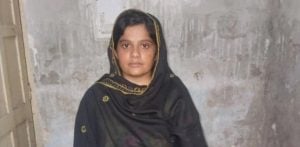"My friend was scared someone would see her"
The morning after pill can be an issue caged in the shadows for South Asian women from Indian, Pakistani and Bangladeshi backgrounds.
The emergency contraceptive pill (ECP), commonly known as the morning after pill, offers women a vital option to prevent pregnancy after unprotected sex.
Socio-cultural expectations and ideals, as well as religious beliefs, often dictate how women approach sex and their sexual health.
The silence around contraception often leaves women feeling isolated and hesitant to reach out for support.
The lack of open discussions can perpetuate the stigma.
Moreover, Desi women being sexually active outside marriage is still a controversial matter, broadly speaking, socio-culturally.
This reality impacts how the morning after pill is viewed.
DESIblitz looks at whether the morning after pill is seen as shameful and the impact on Desi women.
Stigma Surrounding Emergency Contraception

Research has shown that, broadly speaking, women can feel embarrassed when asking for the morning after pill at a pharmacy or doctors.
South Asian communities often attach stigma to conversations about sex and contraception.
Consequently, Desi women may feel this embarrassment and shame more acutely due to cultural expectations around pre-marital sex and female modesty.
Thirty-year-old British Bangladeshi Sammy (nickname) revealed:
“I had to Google the morning after pill for a friend recently and how to get it.
“When I told her most morning after pills need to be taken in 72 hours, she was so grateful she called me as soon as she did.”
Online, the NHS assert:
“You need to use emergency contraception within three to five days of having unprotected sex.”
Sammy continued: “My friend was scared someone would see her and was panicking too much to think clearly.
“I just told my mum I was doing research for curiosity. I’m odd and have done that in the past to appease my curiosity, so she believed it.
“Married women and people like my friend in relationships use it, but there’s that stereotype that it’s for those who hook up, do dodgy stuff, cheat and sh**.”
Sammy’s words highlight the shame women can feel around emergency contraception and the judgements made about its usage.
Family and Community Expectations

South Asian women often carry the burden of preserving family honour, which is tied tightly to their conduct.
Traditionally, modesty, virginity and purity are considered signs of izzat (honour).
Discussions about sex outside marriage are still considered taboo in many South Asian communities and households.
Hence, pre-marital sex, especially for women, is forbidden or shoved into the shadows.
The fear of damaging their family’s reputation can discourage women from accessing contraception.
Twenty-five-year-old British Pakistani Nasima* shared her experience:
“Using the morning after pill is associated with being bad, you’ve done something wrong.”
“And even though I knew it was unlikely anyone from my community or family would be there, I was scared.”
The fear of judgment for engaging in pre-marital sex or seeking emergency contraception leads to secrecy and shame.
Moreover, Sammy, talking about looking up emergency contraceptives for her friend, said:
“If Mum had thought it was for me, I’m not married —the disappointment would have been deep.
“Even if I were married, she’d be sad; she wouldn’t understand why I’d use it.”
The taboo around female sexuality and pre-marital sex can be a potent reality for many Desi women and can impact how they feel about ECPs.
Discomfort & Fear of Judgment from Healthcare Professionals

Due to the taboo around sex and sexuality, South Asian women may feel uncomfortable speaking to health professionals to access ECPs.
For example, Kiridaran et al. (2022) researched British South Asian women and stated:
“South Asian women are uncomfortable accessing sexual health services and communicating their sexual health concerns with health care professionals.
“Service providers should collaborate with community-based organisations to ensure that services are discrete, confidential, and culturally appropriate.”
Moreover, Desi women may feel judged by healthcare professionals when seeking emergency contraception.
Nasima told DESIblitz:
“I don’t know if it was in my mind, but I felt like the pharmacist was judging me.
“I can imagine that fear of being judged stopping some from going to get it, especially in India or Pakistan.
“I’m in the West, and the stress was like nothing else, the feeling of anxiety and embarrassment.
“Even though I had nothing to be ashamed of, I felt it due to what I’ve been conditioned to think.”
In turn, Rita*, who is from India and currently working in the UK, said:
“Emergency contraceptives are more available in most cities, but still frowned on in India. Taking is hidden, and there is misinformation.
“Medical professionals can judge, and friends have told me how uneasy they felt and shamed.
“Even here, from what friends have said, it’s seen as not great, and people don’t know enough.”
Moreover, research has found that ECPs are significantly underutilised in many parts of the world, especially in South Asia.
For example, according to researchers like Abdullah et al., despite the population surge in Pakistan, the use of ECPs remains “alarmingly low”.
It is important to note that pills are the most commonly talked about emergency contraception, but they are not the only type.
Emergency contraception includes an intrauterine device (IUD), also known as a copper coil.
Need for Education, Awareness and Breaking Taboos

Sexual and reproductive health education and discomfort around it remains an issue in South Asian communities.
For Desi women and more broadly, the morning after pill is often stigmatised due to negative stereotypes and connotations.
Some can see the usage of ECPs as a marker of promiscuity or poor moral conduct, particularly for unmarried women.
This stigma prevents open discussions about sexual and reproductive health and can deter women from seeking help when they need it most.
It reinforces harmful stereotypes, where women are judged for using emergency contraception, leading to feelings of shame and isolation.
Breaking these stereotypes and taboos is crucial to fostering a more supportive and informed environment for reproductive health choices.
Increasing awareness about emergency contraception and destigmatising its usage could reduce unintended pregnancies and help diminish the anxiety and shame women can feel.
The morning after pill remains a sensitive and uncomfortable subject for many.
However, breaking the silence and taboo and providing accurate information can empower women to make informed choices without shame.
There is an ongoing need to challenge harmful stigmas by creating safe spaces and encouraging open conversations.
Normalising conversations about contraception, including ECPs and pre-marital sex and seeing women’s sexual desires as natural, is essential to dismantling harmful stigmas and feelings of shame.





























































